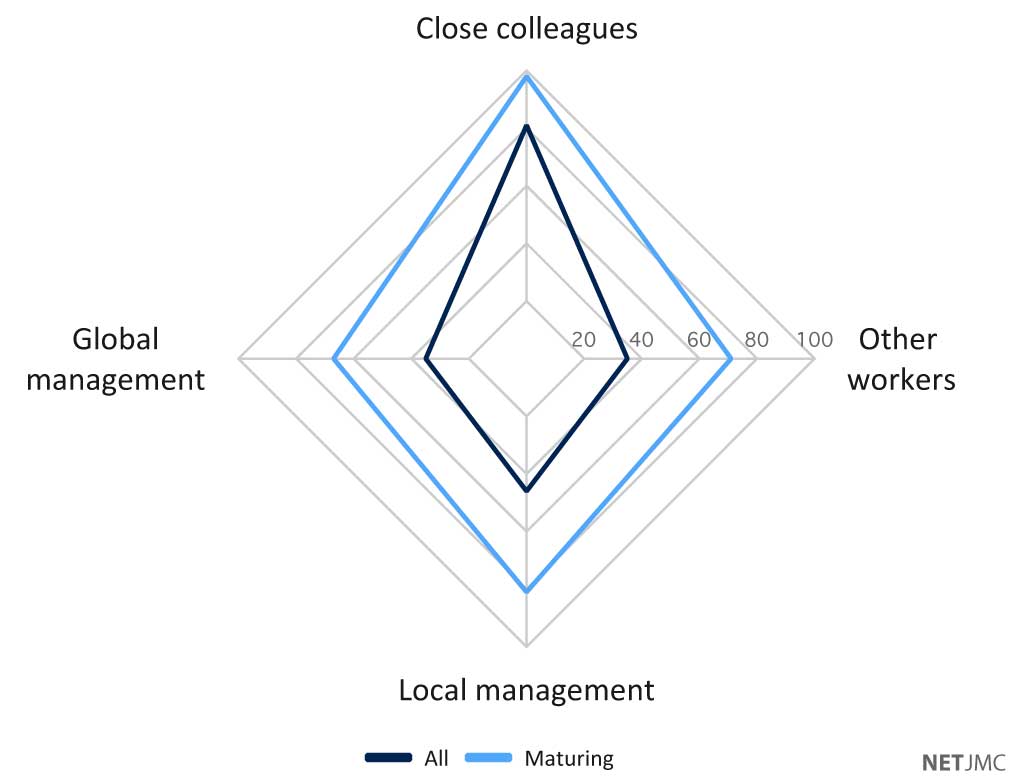How does digital build trust?


It seems normal that people have high degrees of trust in peers and close colleagues, and lower degrees of trust for global/corporate management. Geographical and hierarchical distances are not always easy to diminish.
Hierarchical barriers are stronger than geographical barriersl.
People in more digitally mature organizations are likely to have more chances to interact with global management through information flows – top down, bottom up and horizontal – across the organization.
They will also have more opportunities to communicate and collaborate with other people across the organization, many of whom they have never met face-to-face.
Access and visibility breed trust. We tend to distrust what we don’t know or see, or, at best, feel neutral. Instinctive trust in people who don’t know each other comes about in work cultures where information and work is open and visible.

Nothing matches your request, please try again with a different search term.